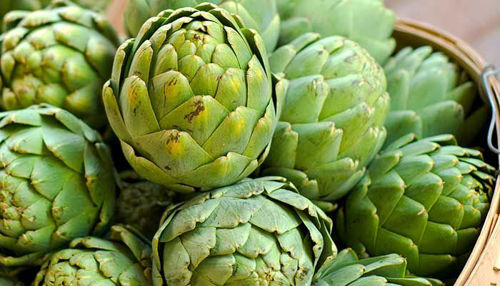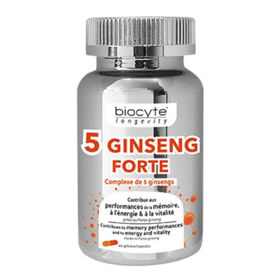Ginseng (from the family Araliaceae - ivy) is a perennial stem that grows about 50 cm high. The dark green leaves are feathery, the small white flowers and red berries appear only in the third year. The twisted root often has a human form and is picked only after seven years or even later. The homeland of ginseng is the rainforests of North Korea, Manchuria and the Pacific coastal area.
The Chinese 'name ginseng means' human roots' and refers to the appearance of rhizomes resembling a human. The generic name Panax is a derivative of the Greek name Panacea the all-healing goddess. In Chinese pharmacy, the plant is mentioned as far back as 5000 years ago. Because it is difficult to cultivate and grows slowly, it had a high value and was long used only by kings and emperors.
Useful parts and ingredients
Dried root is suitable for medicinal use. Before drying, it is treated either with sulfur dioxide (white ginseng) or preserved with steam (red ginseng). The ingredients of the two types do not differ. A complex mixture of triterpene saponins and ginsenosides is pharmacologically effective.
Use in folk medicine
In cold extremities, loss of appetite, weight loss, fright, sexual impotence, infertility, low blood pressure, as well as in nervous pain and insomnia.
Forms and dosage of drugs
In use is pure ginseng root powder or dry alcohol-water extract. Both are available in the form of prepared medicines in capsules, lozenges or drops.
The recommended daily dose is 1-2 g of powdered root, and for extracts depending on the concentration. Prolonged use is recommended.
Making tea
Pour 1 teaspoon of powdered root with 150 ml of boiling water and let stand for 5-10 minutes. We drink 3 cups a day for at least 3-4 weeks.
Contraindications
Do not eat ginseng root during pregnancy or while breastfeeding, as there are no relevant scientific findings yet. In case of diabetes or taking anticoagulants (anticoagulants), consult your doctor before taking ginseng at the same time. Stop taking it before surgery.
Side effects Ginseng can lower blood sugar. Women occasionally report a feeling of tightness in their breasts. Insomnia, high blood pressure and the formation of edema may occur at very high doses.













